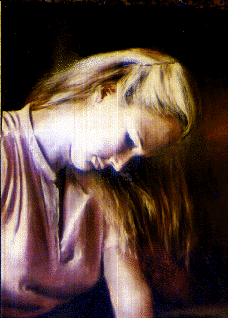
An Orthodox Dialogue 'Thank you for sharing your article ['An Answer to Pain']. . . . [M]uch of what you say has merit, but I'm afraid I cannot accept your principles. From an Orthodox perspective, pain and suffering are . . . a part of this world[;] there is no escape from them. Yes, we must look to the Lord to help us through this world, and the pain in it, but even the Lord . . . suffer[ed] on the Cross because of our sins. Pain is a result of sin, and sin isn't going to go away. In general, our goal in life is to increase love (in its purest form). . . An increase in your love, means a decrease in your sin, which decreases the suffering in the world. Mind you, it doesn't necessarily decrease your own personal suffering, because (as you point out) you have no control over your life in this world. . . [Christ] lived a sinless life, yet suffered a horrific death, but through His love, He relieved the suffering of tens of thousands, and his example throughout the centuries has relieved the suffering of more than could ever be calculated. By His Resurrection from that horrific death, we get hope; which is not relief from pain, but strength to live with pain.'
There is ultimately one principle: That we cannot know what will happen next. It is an epistemological principle (The voice crying in the wilderness was a theory of knowledge), but is equivalent to the concept of God's omnipotence, a satisfactory (logically, humanly) understanding/experience of which manifests as Christian humility. (As in the idea of 'The Word' as motivator of the act: What we do not know.) Life lived within the limits of what we can know--consistent with the idea of life extended in time, of hope, of futurity--miraculously, as it were, transcendentally, is life in Eden, here and now. Only our presumptions stand in our way--our presumptions of knowledge, of God, of ourselves, scientifically, logically, dogmatically--claims against the future, against God's will, against time. And so, independently of the vanity of claims: Time, within the limits of certainty, is eternity. Anything less, in any form, present, past, or future, is the sin of presumption against the Eden around us. Original sin is such a presumption, and is finally and decisively expiated, not by wells of blood, but by depths of philosophic understanding. The philosophy alone has the strength of a Second Coming, operationally conceived. Be well. And smile. Outside of a denial of time, there was never anything to fear. Or desire. Or suffer. Despite every appearance to the contrary, every excruciating cry.
![]()